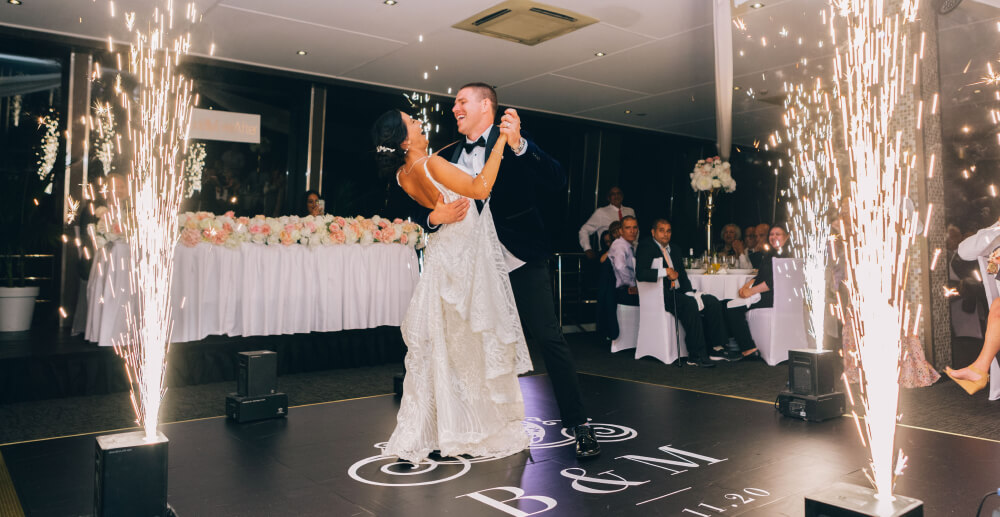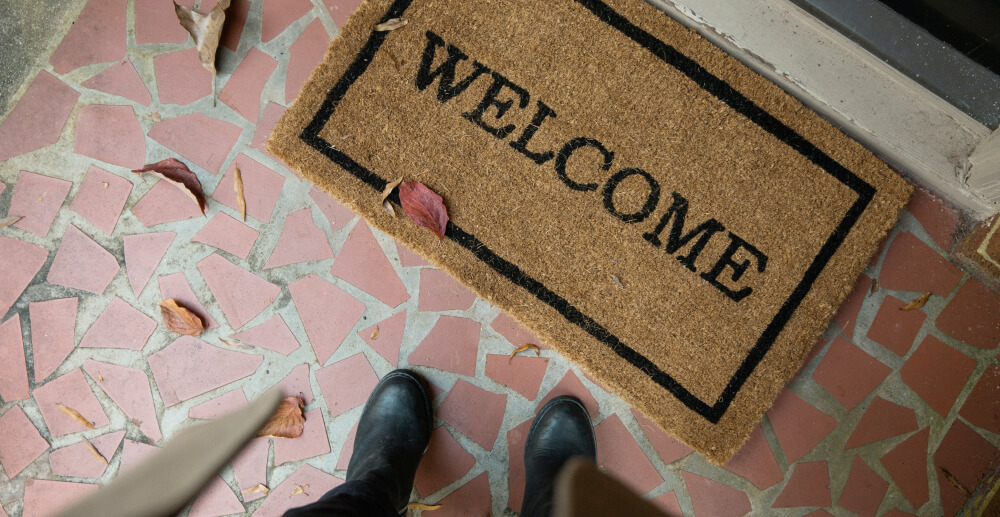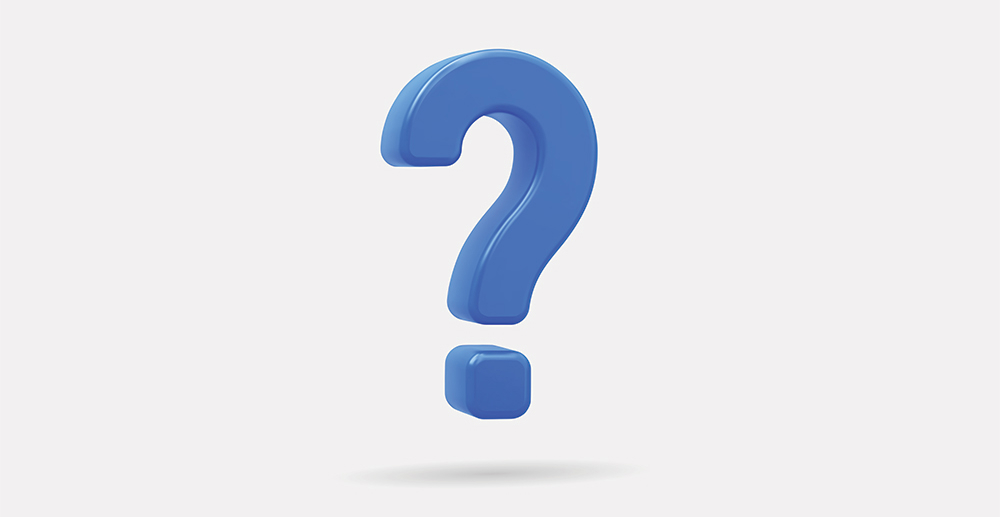As we wear pink for breast cancer awareness in October, Jessica shares her story of navigating breast cancer in early addiction recovery.
A few weeks before my two-year sober anniversary, I was told three words that would forever change my life. “You have cancer.” Breast cancer, to be more specific. But how could this be? I was only 30! But it was true. This is your reminder that there is no such thing as “too young for cancer.”
In the beginning, alcohol brought relief. In the end, addiction brought pain and destruction.
Let’s back up and see how I got here. From the moment of my first drink at 17, alcohol provided relief from anxiety and the constant chatter in my brain that I so desperately longed for. It started out as a good time, socially drinking in my 20s. Over the next 10 years, my drinking progressed to using other substances and drinking daily until I fell asleep or blacked out. It was this constant craving that I couldn’t feed, while I struggled to keep up appearances on the outside.
At 29, everything came crashing down when I finally found myself jobless, divorced, without a valid ID, lacking insurance, and with a car fresh out of the tow yard. I had scraped together my last few nickels from an old purse to buy a 99-cent bottle of vodka to make it through the night. The next day—Feb 20th, 2019—felt different, and for the first time I was ready for help. I began to feel all the emotions that I’d been numbing and avoiding, and cried like never before as grief, sadness, and willingness to change all came flooding out of me.
My recovery journey was a process of learning to live again
My mom made some calls and sent me a link to a local women’s 12-step meeting where I found myself drinking coffee, sobbing, and confused. For the first time, I felt that I wasn’t alone. I listened to other women when they told me that I struggled with a disease and that I wasn’t inherently a bad person. In the past, many had begged me to get help, but I would always push them away. I would tell myself that I just enjoyed a bottle of wine from time to time, but I couldn’t be an alcoholic. I think deep down I knew I couldn’t keep living like this, but the idea of help, or change seemed so big, that I would give up before I ever got started. But now, hearing that I had a disease—alcohol use disorder—meant there was hope to get better. Thus started my recovery journey.
The next few days, I struggled to do basic life tasks such as shower or … not drink alcohol. I found myself going to meetings where I was shown more coping tools and given phone numbers of other sober women to call when I wanted to drink. I’ve heard it said that, “The opposite of addiction is connection.” I do believe that having a support system in place is a key factor in any recovery, no matter your treatment program.
Days turned into weeks, and weeks turned into a year. I had a job and insurance. For the first time, I was imagining a future. I used to joke in my active addiction that I wouldn’t make it past my 30th birthday, but I think deep down I knew that I was drinking and using in a way that meant that dying young wasn’t off the table. Now I was sober and had hope.
The irony came two months before my 30th birthday when I found a lump right under my left armpit. As a female we’re told, “Always do your monthly exams,” and I associated October with the pink ribbon walks. But despite these reminders, I thought breast cancer was something that only happened to older women. In fact, according to the American Cancer Society, “A very small number of women diagnosed with breast cancer are younger than 45.”
Discovering my cancer sent me reeling
So here I was in the shower. When I felt a lump the size of a marble, the pit of my stomach sank. I can’t explain it, but I just knew something was wrong. There are many types of breast cancer, and each has its own symptoms. I encourage everyone to learn about the symptoms and become familiar with what to look out for.
I knew I needed to go to a doctor. This was the first time I’d had a good job that came with health insurance. In my active addiction, I was always afraid of going to the doctor and dentist. I’m not quite sure why, because these fears are not logical. I think they’re rooted in the previous encounters with professionals who displayed their stigma of those struggling with substance use disorder. Even at two years sober, I was still afraid of the potential monetary and emotional ramifications of going to see a medical professional. I’d been taught in early recovery, “It’s about your actions, not your fears,” so I went ahead and scheduled my upcoming appointment to get checked.
This was in the height of a pandemic, so I was informed over the phone that no one would be allowed to go with me. After waiting a month for that appointment, I walked (scared) into the office building and stated, “I’m here to check in for my mammogram and ultrasound.” It actually felt similar to the first time I’d walked into a recovery meeting alone, and since that worked out for me, I knew I had the strength to do this, too.
I lay there, counting the tiles on the ceiling during my images while they determined the likelihood of this foreign lump being malignant (aka cancerous). Apparently, I rated a 5 on the Bi-rad scale. A quick Google later, I realized this meant there was a 95% chance that it was cancer. A few chaotic days later, I followed up that appointment with a biopsy, and then an MRI to determine that I did, in fact, have breast cancer at the age of 30. They found two separate types of cancer, and I love to joke, “Like a true alcoholic, I couldn’t have just one.” I would later learn they were Ductal Carcinoma In Situ and Invasive Ductal Carcinoma spanning over 8cms total through my milk ducts and surrounding tissue.
Applying what I knew about fear from addiction recovery to my cancer
Fear can feel overwhelming, and is important to learn how to manage it, especially in early recovery. When I recognize that I feel a heightened sense of awareness, in order to protect myself, my mind likes to call this a “danger.” It’s often just something unfamiliar. I heard an acronym for F.E.A.R. which is False Evidence Appearing Real. I’ve learned to pause and ask myself:
- Is this based in truth?
- Is this a perceived fear?
- Is this just the unknown causing me discomfort?
Then with those answers, I focus on what’s directly in front of me (so I don’t overwhelm myself) and take it one moment at a time, one decision at a time. This perception shift has helped me walk through so many difficult moments in my recovery, and I now see fear as a necessary catalyst for positive change.
A connection between my drinking and my cancer?
At that point, getting help for my addiction was one of the hardest decisions I had ever made, because of the fear of the unknown and the overwhelming battle I knew it would take to rebuild my life. I was now directly facing the second hardest challenge in my recovery journey: navigating cancer treatment while staying sober.
I had no idea that alcohol is directly linked to increased risk of cancer, and more specifically, breast cancer. You hear that smoking increases the risk of lung cancer, but no one ever talks about alcohol being a carcinogen. The American Cancer Society says, “The risk (for breast cancer) increases with the amount of alcohol consumed. Women who have 1 alcoholic drink a day have a small (about 7% to 10%) increase in risk compared with those who don’t drink, while women who have 2 to 3 drinks a day have about a 20% higher risk.”
I will never know if my years of daily blackout drinking played a part in my cancer. But I know that it did increase my risk, and that’s not a risk I’m willing to take again in the future. There’s no point in dwelling on why this happened to me. I choose to instead put that energy into focusing on what I could do about it now. As humans, we often search for the why so we can learn to protect ourselves. But I’ve come to realize that we also must keep moving forward in positive directions trying to better ourselves, and not get caught up or stuck in the victim mode.
Starting by reaching out
I was formally diagnosed February 5th, 2021 (the day after Cancer Awareness Day). 15 days later, on February 20th, I celebrated two years of sobriety. I felt like everyone around me was holding their breath to see if I would pick up a drink or use again. Honestly, at the time, I wasn’t sure if I would, either. The doctor’s office called me over the phone on a Friday to tell me the news, but there was a part of me that already knew, deep down.
I’d often heard the words “gifts of sobriety,” but I never really understood the depth of what that meant, till I was literally faced with life-or-death trials. In my active addiction, I was not a reliable friend or daughter. Even if I did show up to something, I was always distracted by thinking about my next drink and where I would get it.
In recovery, I work hard on grounding myself in something universally bigger than me, and in the gratitude to finally be present in the lives of those I loved. Then the pandemic derailed the recovery routines that I had worked so hard to create. My meetings were shut down, my friends were all isolating, and I had become lonely and scared, unsure who was still safe to confide in. I wasn’t sure how I was going to navigate treatment when I was no longer plugged into my old recovery circles. Do you just call them and say, “Hey, it’s been a while! By the way, I have cancer … but don’t worry, I don’t think I’m going to die.”?
It was scary, but even though that phone felt like a thousand pounds, that’s exactly what I did.
Stepping up for myself in all aspects of my treatment and recovery
I like to describe cancer as a marathon. Everyone wants to be there for you in the beginning to cheer you on and at the end to congratulate you. But very few are willing to put on some shoes and run alongside you. At times this analogy has felt true to my recovery as well. Everyone is so proud of my milestones, but the day-to-day support from friends, and family members can feel scarce at times. Right after my diagnosis, I was emotionally all over the place. I doubled down on my recovery, but my intrusive thoughts were trying to tell me how much easier it would be to just check out for a while. I went from not even having a primary care doctor to deciding my chemo treatment plan, electing surgery, verifying my insurance coverage, and much more—practically overnight.
Over the next three months, I underwent 12 rounds of weekly chemo and immunotherapies while struggling to work, attend my appointments, and balance my recovery. I began to get weaker and lose weight, and I felt everyone view me like this fragile egg. To be fair, I kinda did look like one without all my hair! I was in constant pain and felt fatigue like never before. Was this depression, my medication, my life, my cancer? I used to drink when in pain, so now pain became an unexpected trigger. Daily I was reminding myself, “No matter what, just don’t drink alcohol or use.” I stocked up on sparking water and tea. (For those in chemo, I don’t personally recommend mint tea. It can trigger acid reflux. I learned this the hard way). I became more and more immunocompromised and had to be isolated in order to protect my health. Isolation, as many know, can be very dangerous for someone struggling with alcohol use disorder like myself. As I said before, connection is the opposite of addiction.
Every day I would show up the best I could and accept the help I was offered. Asking for help is something I have always struggled with. When someone would say, “Let me know how I can help,” I learned to reply, “What does help look like to you?” Part of my loved ones’ healing journey around my diagnosis was being of service—just like it was part of the steps I was taught when I first got sober.
The days passed. Apart from a looming fear that chemo wasn’t going to work, I tried to stay grounded and find a bit of joy in each day. Finding joy wasn’t about going on that giant trip or buying that fancy purse, but rather finding ways to embrace who I was as a person and what makes me happy. In my opinion, you don’t need to be good at something to try it. Get up and dance at a concert in the park! I promise you everyone is busy worrying about themselves, rather than judging you.
There were good days and a lot of bad days. Regardless of how I felt, l chose to stay sober. One of my favorite tips is, “If you are struggling with a craving, then take a shower.” Having a safe outlet was (and still is) very important to my recovery. Some of my outlets are art, dancing, skating, and gardening. In my weakened state, my outlet became releasing my grief in complete surrender while crying on the shower floor.
Getting through my cancer treatment and discovering who I am on the other side
After my initial 12 rounds, I had a double mastectomy without reconstruction, aka an Aesthetic Flat Closure. This was followed by 14 more rounds of chemo “just in case.” I’m now undergoing monthly injections and daily hormone suppressants, but I’m considered to have no evidence of disease (NED).
It’s been a struggle through the grief, the loss, the pain, and the survivor’s guilt over the past year and change. After years of isolation from the pandemic and then chemo, I’m now realizing how bad my social anxiety has become as I try to reintegrate back into life again. I give myself grace, realize that it’s going to be uncomfortable, and choose courage over comfort daily.
As of July, I’ve been one year in remission. I may have the same name, but I feel like a different person. To be honest, I love this version of me more than I ever used to. I’m not sure what the future holds for me, but today I am choosing not to drink and to try to be a good person that I’m proud of. And that’s enough.
Please, get to know your body, learn the symptoms, and get regular screenings and mammograms for breast cancer (men get it too). If something feels off, go get it checked. One in eight women get breast cancer. If you are someone in addiction recovery like me, our risks are even higher.
You never think it’s something that can happen to you, until it does.









